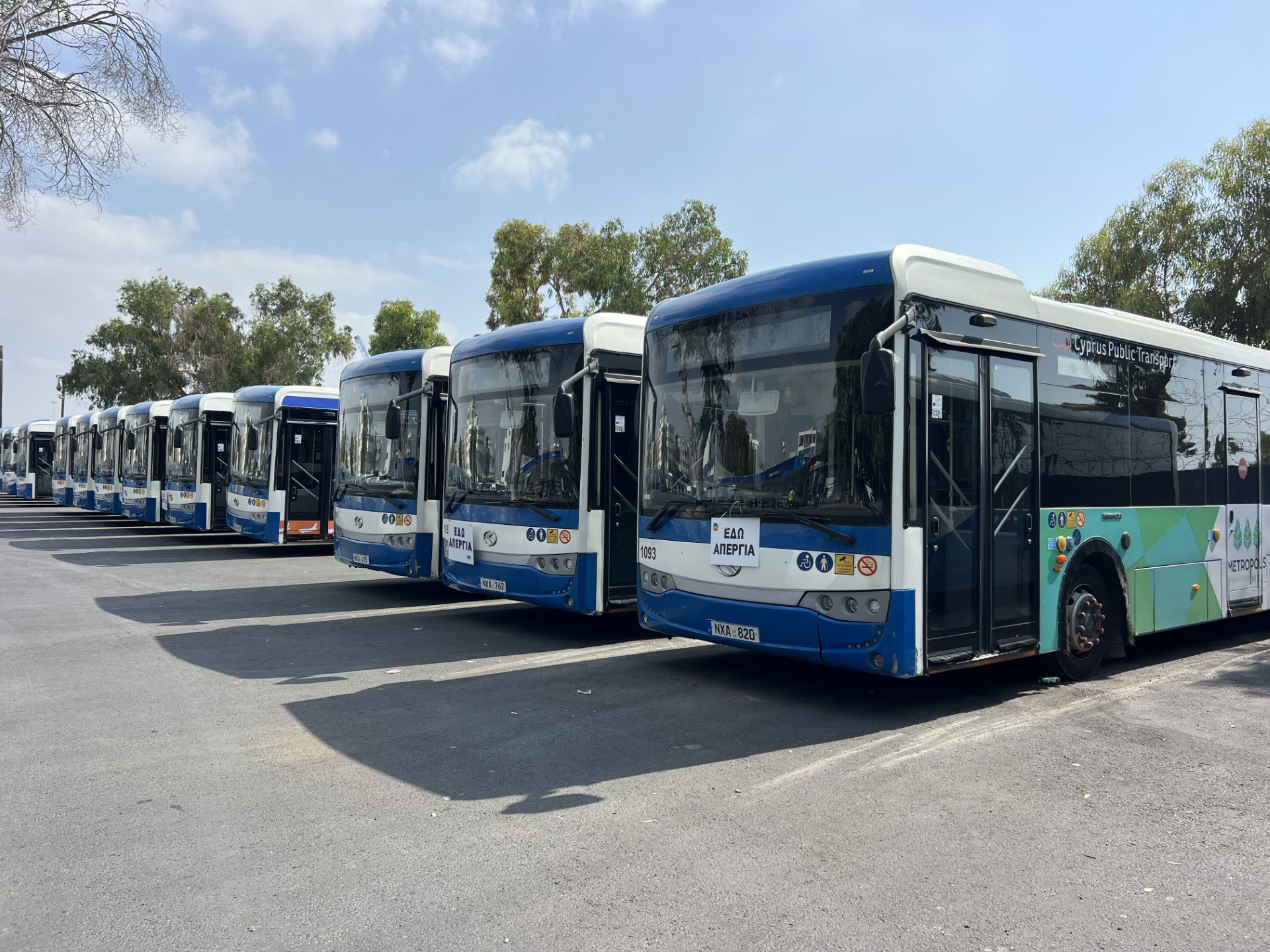The strike by Larnaca public transport workers has been suspended, union leaders confirmed on Monday, following an invitation to urgent talks at the labour ministry. As a result, a planned demonstration in Nicosia has also been cancelled.
In a joint statement, the unions announced that the industrial action was being paused “as a gesture of goodwill,” after being called to a meeting with the director of labour relations at the labour ministry.
“The current strike by Larnaca bus workers is suspended as a sign of good faith due to the fact that we have been invited to a meeting at the office of the director of labour relations of the labour ministry,” the statement read.
The outcome of the meeting will be conveyed to a general assembly of the workers later in the day, the unions added.
The strike, launched over unresolved disputes relating to pay and working conditions, had already caused widespread disruption to public transport services in Larnaca.
Although the unions have not publicly detailed specific demands, they have repeatedly highlighted ongoing disagreements with the bus operating company.
Speaking to the Cyprus Mail, Segdamelin-PEO official Nadia Kyritsi confirmed that the scheduled mobilisation of the striking workers in Nicosia has been cancelled.
“They will not proceed with the protest in Nicosia as initially planned,” she said, reiterating that the unions are now focused on the outcome of the upcoming talks.
Police also issued a statement confirming the cancellation of the Nicosia demonstration, citing updated information from the organisers.
The decision to pause the strike and cancel the protest marks a possible turning point in the standoff. Workers had previously warned of prolonged industrial action if their concerns were not addressed.
Union leaders have accused the operating company of breaching labour agreements and have repeatedly urged the government to intervene. Monday’s invitation to dialogue is seen as a significant step toward de-escalation.
The Larnaca strike has had an impact on thousands of commuters, particularly during peak hours, with key routes left with limited or no service.
Passengers expressed frustration online, citing poor communication and disruption to their daily routines.






Click here to change your cookie preferences